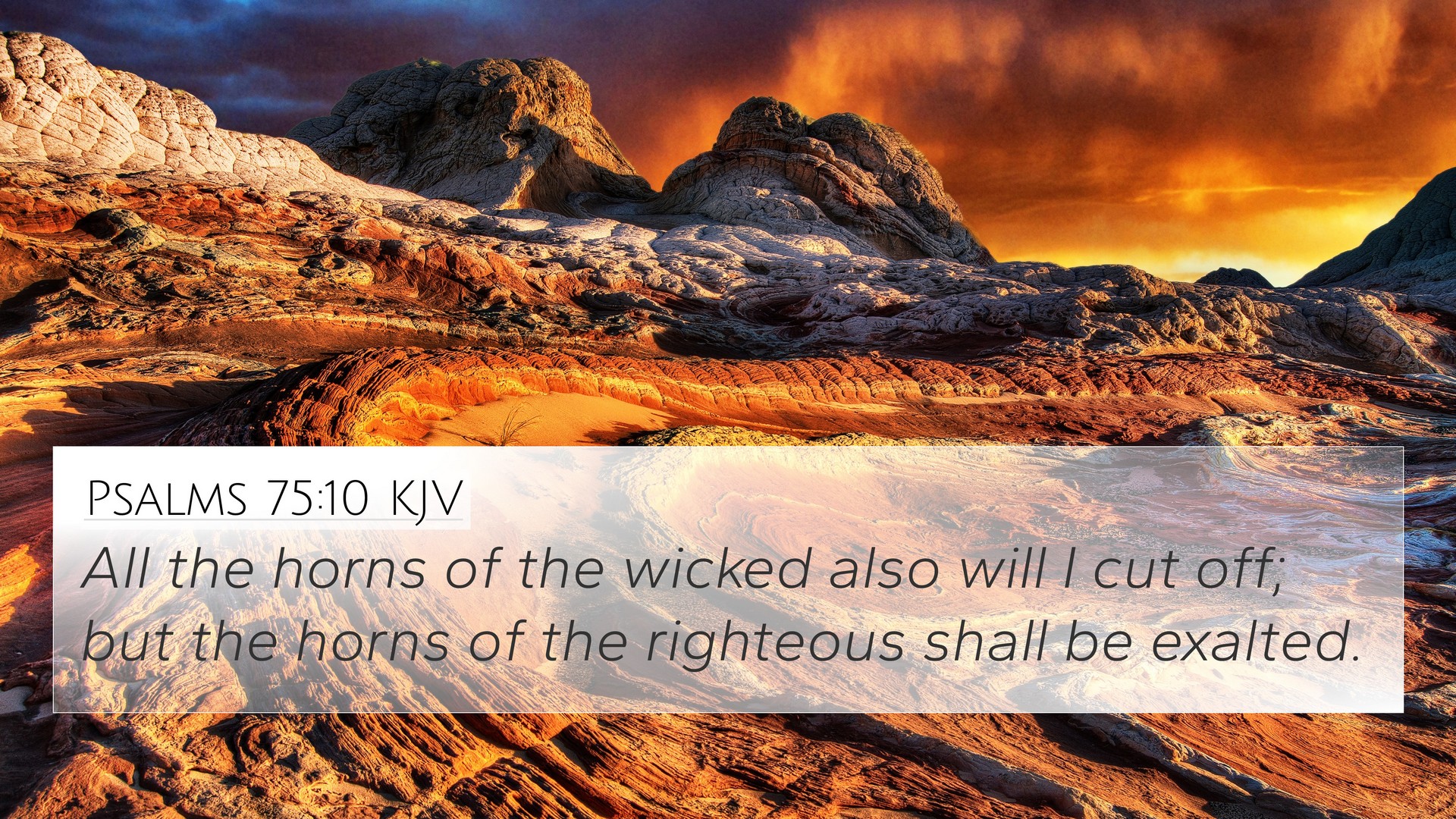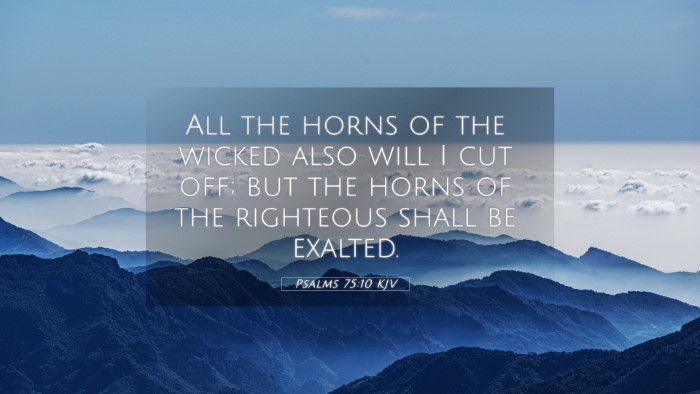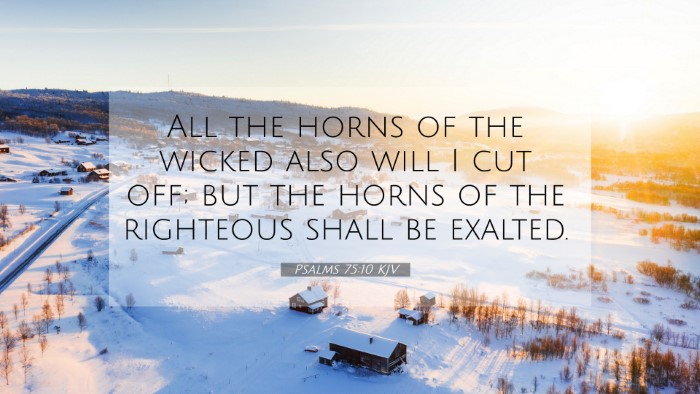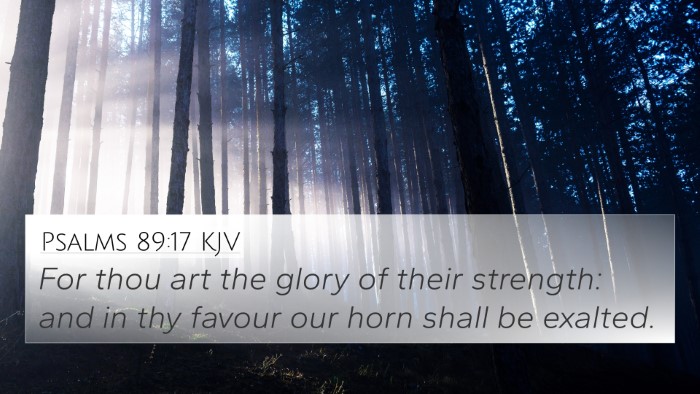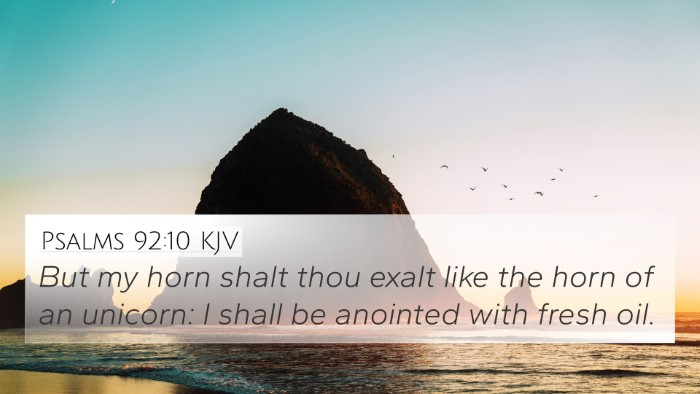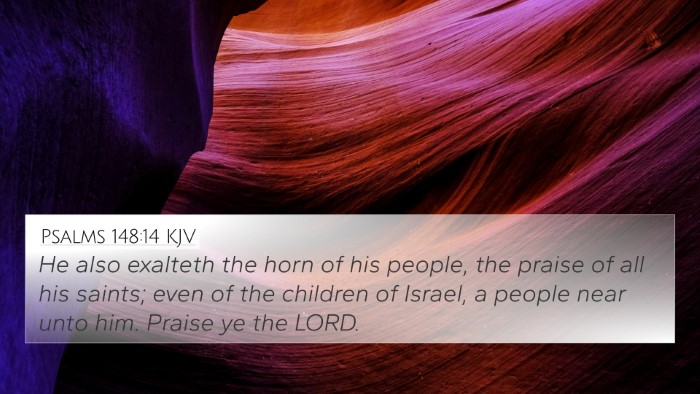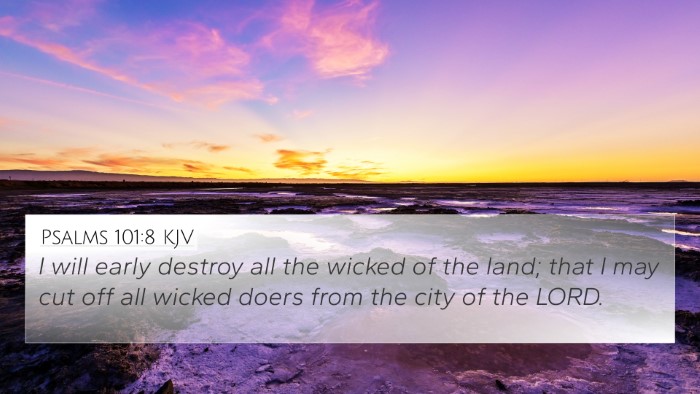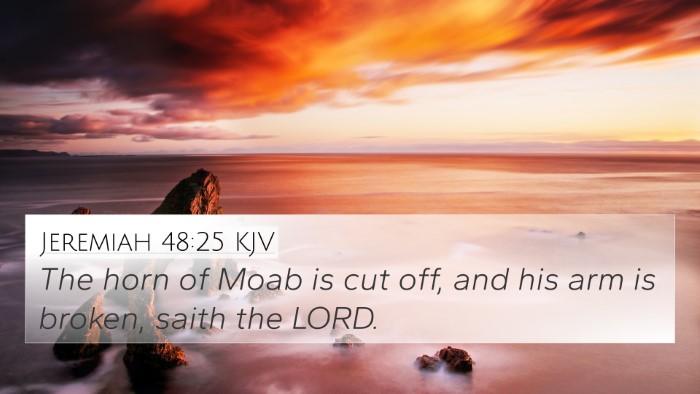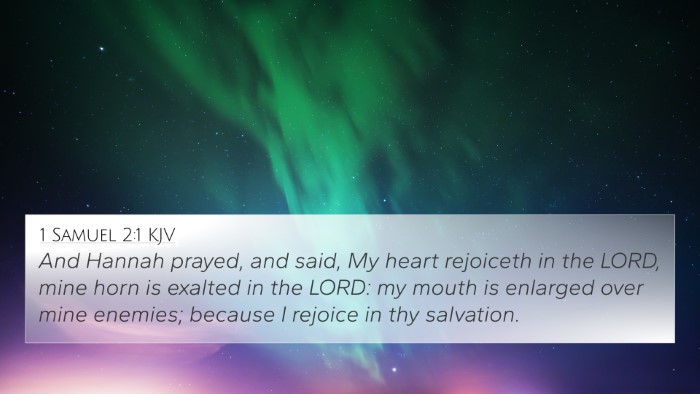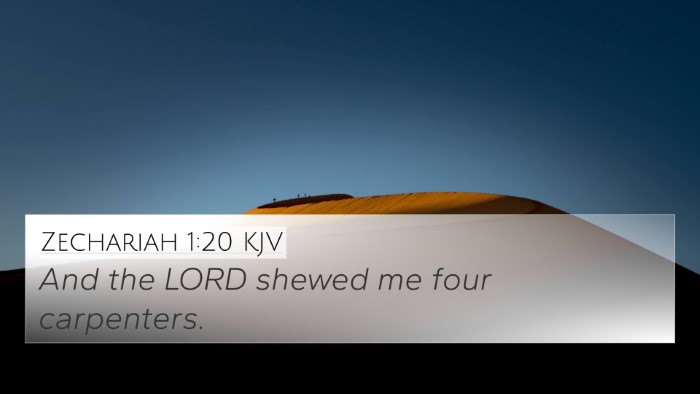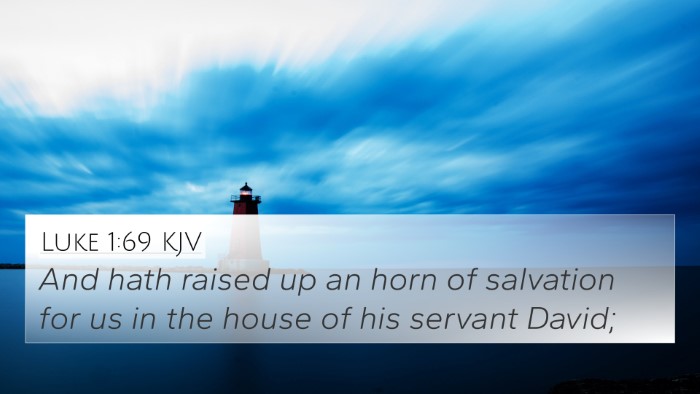Psalms 75:10 reads: "And all the horns of the wicked also will I cut off; but the horns of the righteous shall be exalted." This verse highlights the theme of divine justice and the ultimate triumph of righteousness over wickedness. Here, we explore its deep meaning through the insights of various public domain commentaries, including those by Matthew Henry, Albert Barnes, and Adam Clarke.
Overview of Psalms 75:10:
In this verse, the "horns" symbolize strength or power. The cutting off of the wicked's horns signifies the removal of their power and influence, while the exaltation of the horns of the righteous emphasizes God's favor and empowerment of those who pursue righteousness.
In-Depth Commentary Insights
Matthew Henry: Henry interprets the horns as a representation of political power and authority. His view is that God, in His providence, will ensure that the power of the wicked is diminished and that the rightful authority of the righteous will prevail. This indicates a future restoration of justice where the rightful will receive their due reward.
Albert Barnes: Barnes explains that this verse reflects the confidence of the psalmist in the sovereignty of God. By stating that he will cut off the horns of the wicked, it assures the listeners that God will intervene in history and in their lives to judge wickedness. This verse also serves as a comfort for the oppressed, illustrating a promise that evil does not have the ultimate say.
Adam Clarke: Clarke adds a historical context, indicating that such actions were common in ancient Near Eastern cultures where the defeat of enemies was celebrated as divine justice. He comments on the poetic nature and the dual imagery of destruction and exaltation, portraying the dichotomy between the fate of the wicked and the faithful.
Cross-References for Psalms 75:10
- Psalm 92:10: "But my horn shalt thou exalt like the horn of a unicorn: I shall be anointed with fresh oil." This verse parallels the theme of exaltation for the righteous.
- Psalm 89:17: "For thou art the glory of their strength: and in thy favor our horn shall be exalted." This highlights the intervention of God in supporting righteousness.
- Proverbs 22:12: "The eyes of the Lord preserve knowledge, and he overthroweth the words of the transgressor." This reflects the idea of divine justice being enacted against the wicked.
- Malachi 4:1: "For, behold, the day cometh, that shall burn as an oven; and all the proud, yea, and all that do wickedly, shall be stubble: and the day that cometh shall burn them up, saith the Lord of hosts." Malachi echoes the finality of God's judgment against the wicked.
- Isaiah 11:4: "But with righteousness shall he judge the poor, and reprove with equity for the meek of the earth: and he shall smite the earth with the rod of his mouth, and with the breath of his lips shall he slay the wicked." This emphasizes the judgment of the wicked through righteous intervention.
- Luke 1:51-52: "He hath showed strength with his arm; he hath scattered the proud in the imagination of their hearts. He hath put down the mighty from their seats, and exalted them of low degree." These verses affirm that divine authority will always ensure justice for the meek.
- Psalm 37:17: "For the arms of the wicked shall be broken: but the Lord upholdeth the righteous." This offers a reassurance of the Lord’s protection over the godly.
- James 4:10: "Humble yourselves in the sight of the Lord, and he shall lift you up." This verse connects to the theme of God's exaltation of the humble and the faithful.
- Revelation 20:10: "And the devil that deceived them was cast into the lake of fire and brimstone, where the beast and the false prophet are, and shall be tormented day and night for ever and ever." This final judgment of evil reinforces the theme of God's absolute triumph over wickedness.
- Psalm 75:7: "But God is the judge: he putteth down one, and setteth up another." This verse establishes the sovereignty of God in establishing authority and power.
Conclusion and Thematic Connections
Psalms 75:10 serves as a powerful reminder of the certainty of God’s justice. The references provided illustrate the interconnectedness of biblical themes regarding justice, power, and the divine response to wickedness. As believers study the Scriptures, the cross-referencing of related themes can provide deeper insights into God's nature and His dealings with humanity.
Understanding how these verses relate to each other enhances our comprehension of Biblical truth and encourages a practical application of God’s promises in daily life. By utilizing tools for Bible cross-referencing, individuals can engage in a comprehensive Bible study that uncovers the rich tapestry of connections woven through Scripture.
